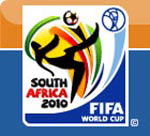Post-2010: weighing up the benefits for future planning

It is true that major events may lead to residents being inconvenienced and frustrated by road closure, traffic jams, parking restrictions, congestion, and even noise from multicultural crowds. But events have grown in importance and emerged as a significant catalyst for promoting economic development, job creation, sporting development, cultural integration, human interaction, raising global visibility, boosting tourism and promoting civic pride and social cohesion.
2010 FIFA World Cup assessment
There are undoubtedly political, economic and social benefits that South Africa generated from hosting the 2010 FIFA World Cup.
Civic pride and social cohension
Former President Nelson Mandela said after SA was announced as host to the 2010 World Cup, "The world cup will help unify our people. If there is one thing on this planet that has the power to bind people together it is football."
As predicted South Africans of all races were united behind Bafana Bafana, global nationals were united behind their national teams and global citizens united behind football. The event revived the celebration atmosphere and renewed the spirit of togetherness that South Africans experienced when apartheid was overthrown by democracy in 1994. It brought players and supporters from different nations together and afforded them an opportunity to take an unequivocal stance against racism, xenophobia, and against the developing world's exclusion, oppression and exploitation.
Image compatibility
The 2010 World Cup created a wonderful PR platform for South Africa to build a brand identity that reflects the country's economic diversity, entrepreneurial aspirations, investment opportunities, economic growth, and greater stability.
It was widely received and managed as an unparalleled marketing opportunity for South Africa and its business community, and was appropriately exploited to promote the country's products and services. The event enhanced the image, reputation and profile of SA, improved Africa's global image and helped to combat afro-pessimism.
Hosting the event also presented Africa with an opportunity to take charge of the management of the continent's brand, instead of relying on foreign countries, donor agencies and aid celebrities.
Media platform
With games airing live on worldwide television, cell phones, and computers and covered extensively by international press, the 2010 FIFA World Cup provided the country with significant national and international media exposure. The 2010 story was not only about players, managers, matches, stadiums, broadcast rights, referees, game plans and supporters, but about the country's political stability, investment opportunities, business excellence, tourism experience and other unique strengths.
With its 64 games watched by a cumulative audience of 40 billion people in 207 countries, the World Cup provided a massive spectacle, covered by the world's biggest television networks, radio stations and the world's most influential press.
Brand positioning
The 2010 event showcased the country and continent's new brand trends, attributes and experience, and positioned SA and Africa as places of peace, friendliness, competency, fun and progress. It further positioned the continent, particularly SA as a destination for events, visitors and investors.
Increased tourism volume and spend
The event attracted more than one million participants, spectators and visitors. According to Finance Minister Pravin Gordhan, "The tournament will add 0.4 percent to the country's real GDP. What this actually means is that about R38 billion will be added to the GDP as a result of the World Cup." Again the economic and social benefits created by the event will continue to benefit South African long after the visitors have left the country.
Infrastructural development
From staduims and precinct development, training grounds, base camps, community soccer grounds, public transport, roads, healthcare, broadcast and telecommunications, ports of entry infrastructure, recreational facilities to safety and security, 2010 has stimulated the provision and improvement of the country's infrastructure. The challenge now is to maintain and sustain such deliveries.
Job creation and skills development
More than 20 000 jobs were created for the construction of the World Cup stadiums and several thousands in tourism and hospitality sectors. Construction workers of the stadiums were given extensive skills training which will enable them to meet the much needed demand for skilled workers on other construction projects and public works programmes post 2010. About 4000 event volunteers gained experience of big event co-ordination.
2010 legacy
When South Africa bid to host the 2010 FIFA World Cup, it was done so on the basis that the tournament should leave a lasting legacy for the country and continent. Through the event, government and African countries collaborated on a number of projects which contributed to the African legacy. These included; promoting a healthy lifestyle through sports, fostering pride in the country and continent, peace and nation-building, football support and development, environment conversation, culture and heritage, communication and telecommunication, and continental security cooperation.
Another point of view
However, some think that "more and more I am convinced this World Cup is going to land up as a huge event within a hugely controlled environment that has nothing to do with real life in South Africa." Such critics ask the following questions:
- Was investing in the 2010 project worth it?
- Has the event improved the lives of poor South Africans?
- Can a developing country like SA afford channelling more resources to other major international events at the expense of providing basic services?
While benefits have been over-emphasised and over-publicised, negative outcomes such as:
- Sky-rocketing event costs,
- Duplication of resources (Moses Mabhida vs Kings Park Stadium),
- Lack of post 2010 sustainability strategy,
- Distraction of government development programme,
- Economic "fronting",
- Meagre salaries which led to protests during the event,
- Empty hotels and B&Bs,
- Corruption and nepotism within the host cities,
- Failure to incoporate local entrepreneurs, and
- 2010 infrastructural development biased towards urban areas (which undermines government's priority of rural development to address spatial economic inequality) were overlooked or less publicised.
Comprehensive evaluation study needed
The excitement associated with a successful hosting of the World Cup has encouraged South Africans to bid for similar events. Now government and the LOC need to conduct a comprehensive evaluation study of the 2010 tournament that will cover the socio-economic impact study, service quality, residentials' perceptions, marketing and media impacts, business leveraging, as well as post-event impacts.
In their working paper Professors Kamilla Swart and Urmillar Bob say "Post 2010, it is hoped that collaborative endeavour will result in the development of a database of research relevant to the World Cup, including international best practice. This will permit a critical examination of the advantages and disadvantages of hosting the World Cup, and prospects for bidding for future events."
Considering the excitement of the past month, it is quite sad to see the World Cup end. The football games, football celebrities, festive atmosphere, the flags, the fans, the foreign media, and the fun - it's been electrifying. Come Brazil 2014.


























